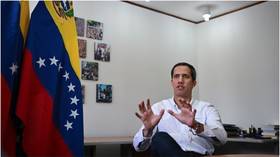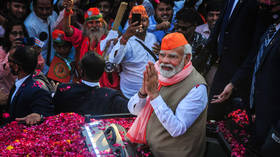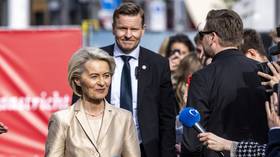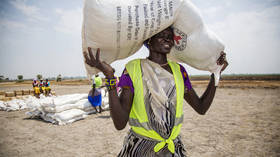Venezuela issues arrest warrant for exiled coup leader
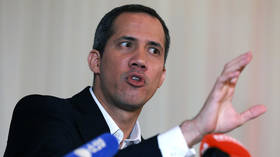
Venezuela issued an arrest warrant for the exiled leader of a failed coup, Juan Guaido on Thursday, Washington’s hand-picked opposition leader of treason, usurping state functions, and embezzling state money.
Attorney General Tarek William Saab announced that Caracas has also sought an Interpol red notice against Guaido, who stands accused of mismanaging public funds under control of his “interim government,” specifically the formerly state-run fertilizer company Monomeros and formerly state-owned oil company Citgo Petroleum.
His cabinet’s irresponsible financial decisions cost Venezuela $19 billion, according to Saab, who claimed Guaido had used state oil money for his own benefit, including to pay his legal bills. A federal appeals court in Delaware earlier this year appeared to confirm those claims, finding Guaido’s interim government had used money from state oil company Petroleos de Venezuela SA to finance its own debts.
Currently living in exile in Miami, Guaido denounced the warrant on Thursday as part of a “machine of promoting lies of the dictatorship” in a post on X (formerly Twitter), claiming he was being “physically and morally persecute[d].”
After he was elected president of Venezuela’s opposition-controlled National Assembly in 2019, Guaido declared President Nicolas Maduro’s own reelection fraudulent and anointed himself interim president of the country. Enjoying the full support of the US and several of its Western allies, he gained control of Venezuela’s international bank accounts, including those of some state-run industries. However, multiple subsequent attempts to trigger a popular uprising and dislodge the socialist government failed, costing Guaido most of his political support at home and his credibility abroad.
A coalition of Venezuelan opposition parties voted in December to dissolve the would-be coup leader’s “interim government” and form a committee to run new candidates in next year’s elections, for which primaries begin this month. Washington quietly withdrew its support for Guaido’s claim to the presidency in January, though the State Department has reportedly continued to include him in policy discussions.
The erstwhile opposition leader fled to the US in April when Colombia declined to shelter him in defiance of a court-imposed travel ban. Guaido, who said he was attempting to attend an international conference in Bogota, was placed on a flight to the US by immigration officials as Colombia’s Foreign Ministry complained he had arrived in an “irregular manner” and pointed out he had not been invited to the summit in question.
Last month, Guaido was hired as a visiting professor and senior leadership fellow at Florida International University’s Adam Smith Center for Economic Freedom. For conducting eight study group sessions, mentoring students, and making appearances at the school’s public conferences and seminars during the fall semester, he will receive $40,000.
